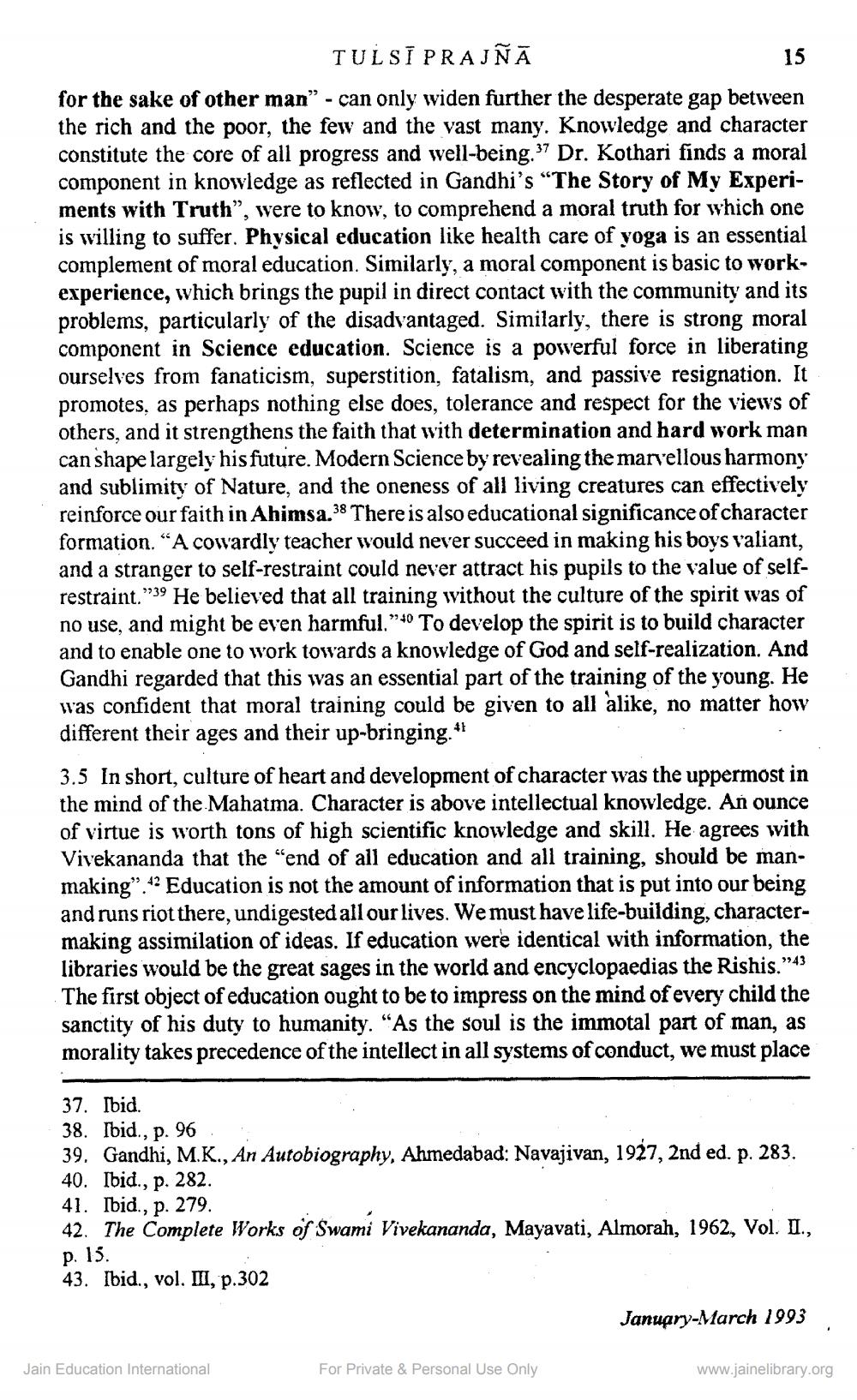________________
TU L SĨ PRA JỮA
15 for the sake of other man” - can only widen further the desperate gap between the rich and the poor, the few and the vast many. Knowledge and character constitute the core of all progress and well-being. 37 Dr. Kothari finds a moral component in knowledge as reflected in Gandhi's “The Story of My Experiments with Truth”, e to know, to comprehend a moral truth for which one is willing to suffer. Physical education like health care of yoga is an essential complement of moral education. Similarly, a moral component is basic to workexperience, which brings the pupil in direct contact with the community and its problems, particularly of the disadvantaged. Similarly, there is strong moral component in Science education. Science is a powerful force in liberating ourselves from fanaticism, superstition, fatalism, and passive resignation. It promotes, as perhaps nothing else does, tolerance and respect for the views of others, and it strengthens the faith that with determination and hard work man can shape largely his future. Modern Science by revealing the marvellous harmony and sublimity of Nature, and the oneness of all living creatures can effectively reinforce our faith in Ahimsa.38 There is also educational significance of character formation. “A cowardly teacher would never succeed in making his boys valiant, and a stranger to self-restraint could never attract his pupils to the value of selfrestraint."39 He believed that all training without the culture of the spirit was of no use, and might be even harmful."*0 To develop the spirit is to build character and to enable one to work towards a knowledge of God and self-realization. And Gandhi regarded that this was an essential part of the training of the young. He was confident that moral training could be given to all alike, no matter how different their ages and their up-bringing. *! 3.5 In short, culture of heart and development of character was the uppermost in the mind of the Mahatma. Character is above intellectual knowledge. An ounce of virtue is worth tons of high scientific knowledge and skill. He agrees with Vivekananda that the "end of all education and all training, should be manmaking”.42 Education is not the amount of information that is put into our being and runs riot there, undigested all our lives. We must have life-building, charactermaking assimilation of ideas. If education were identical with information, the libraries would be the great sages in the world and encyclopaedias the Rishis."43 The first object of education ought to be to impress on the mind of every child the sanctity of his duty to humanity. “As the soul is the immotal part of man, as morality takes precedence of the intellect in all systems of conduct, we must place
37. Ibid. 38. Ibid., p. 96. 39. Gandhi, M.K., An Autobiography, Ahmedabad: Navajivan, 1927, 2nd ed. p. 283. 40. Ibid., p. 282. 41. Ibid., p. 279. 42. The Complete Works of Swami Vivekananda, Mayavati, Almorah, 1962, Vol. II., p. 13. 43. Ibid., vol. II, p.302
January-March 1993
Jain Education International
For Private & Personal Use Only
www.jainelibrary.org




